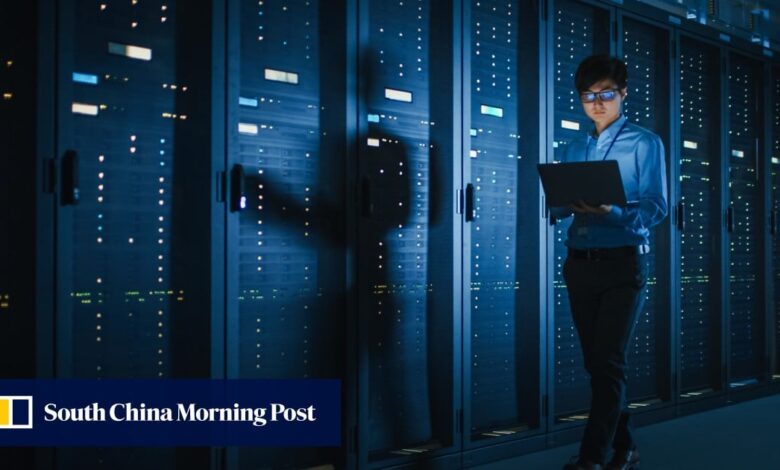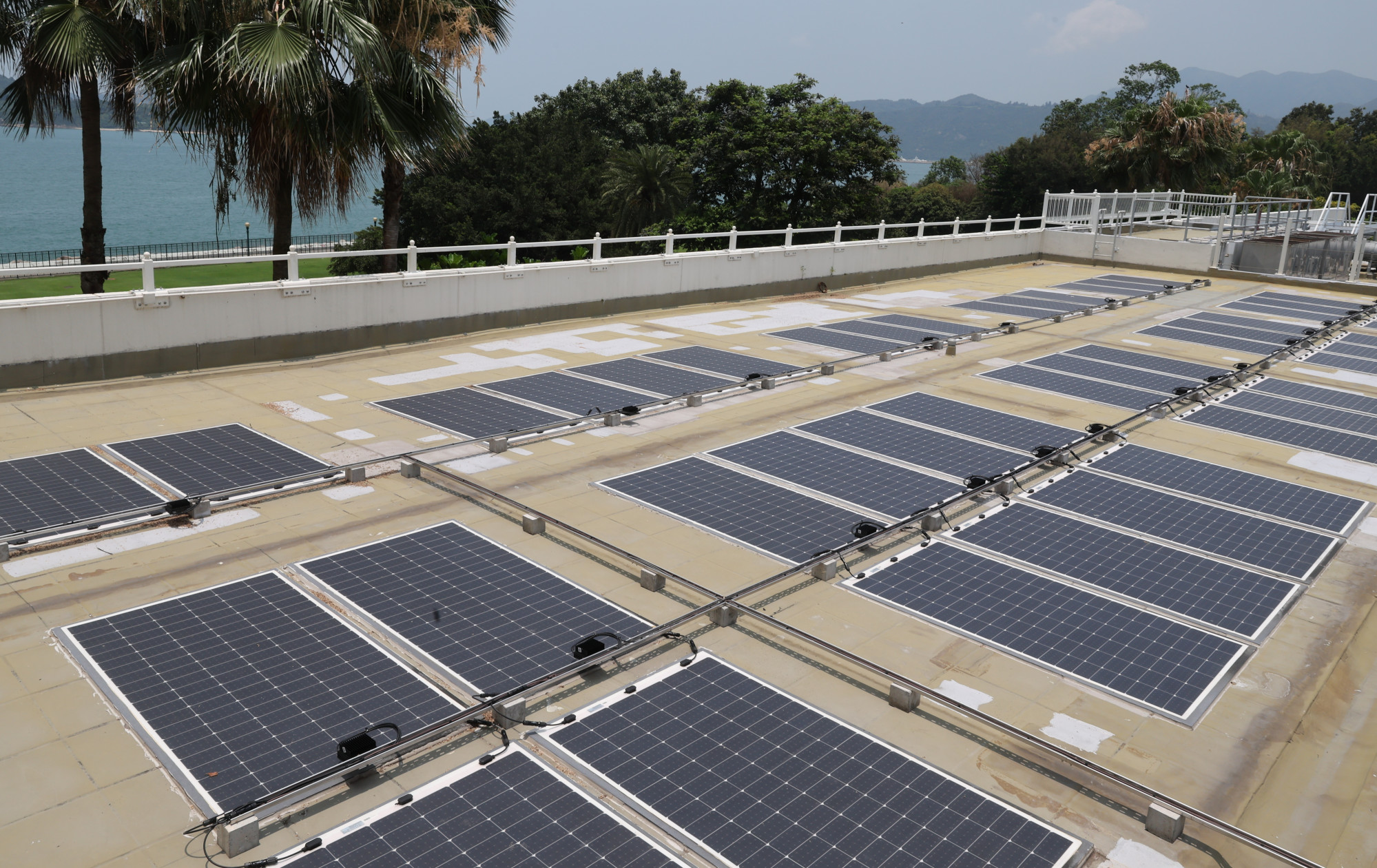Hong Kong needs more renewable power and government land grants to be a magnet for low-carbon data centres: experts

[ad_1]
Hong Kong needs to improve access to electricity from renewable sources and provide government subsidies and land grants if the city wants to be a hub for the data centre business in the Asia-Pacific region, according to experts.
Limitations on using renewable power in Hong Kong present a major barrier to constructing data centres with a lower carbon footprint in the city amid rising energy consumption, said Zena Cheng, vice-president of channel and partnerships at Sunevision Holdings, one of the largest data centre providers in Hong Kong and the technology arm of Sun Hung Kai Properties.
“The servers are getting smaller and smaller, but the amount of power that is required is getting higher and higher,” Cheng said during a panel discussion on sustainable data centres at an innovation summit hosted by Schneider Electric on Monday. “That means the density of power consumption per square foot is getting higher.”
Globally, data centres consumed between 240 and 340 terawatt hours of electricity in 2022, according to estimates from the International Energy Agency. That translates to between 1 per cent and 1.3 per cent of global electricity demand and represents a 70 per cent increase in power demand since 2015.

Meanwhile data centre clients, who are pursuing their own carbon-reduction targets, are pressing the industry to adopt more sustainable practices.
“Our customers are driving for this change because they are looking for ESG [environmental, social and governance],” said Clement Chung, director at engineering firm Arup, speaking during the same panel discussion. “If you want to have business, you have to” look for environmentally friendly solutions.
He added that this has put pressure on both data centre operators and designers to embed sustainability into their work.
Clients are “looking for ESG facilities that can also help them [reduce] their carbon footprint”, but in Hong Kong it is very difficult to build large solar farms or find places to build windmills to generate renewable energy, Sunevision’s Cheng said.
That leaves data centres in Hong Kong reliant on the city’s power companies for clean energy, said Chung.
However, Hong Kong has a long way to go before operators and data centre end-users can buy consistent and scalable green energy, said Andrew Green, senior director and regional data centre practice lead at JLL.
Firms using credits to offset carbon footprint more likely to see lower emissions
Firms using credits to offset carbon footprint more likely to see lower emissions
This problem is not unique to Hong Kong, he added. “The time lag between what all of our end users are doing around the world, and governments committing funding to help with the growth of sustainable energy, is at least a 15-year lag before we are actually able to buy it,” Green said. “We’re always going to have a very high electricity-use facility, I don’t see that going away in my lifetime.”
If the government is serious about the data centre business in Hong Kong, it should provide more land grants for construction, Arup’s Chung said.
Data centres require a lot of space, and Hong Kong currently offers no gross floor area exemptions for building data centres in the city, he said.
“In Hong Kong, if we want to continuously be a central hub for the big players in Asia-Pacific, we have to have government support,” Chung said. “We have to have the power supply, and a good policy to do this.”
[ad_2]
Source link





